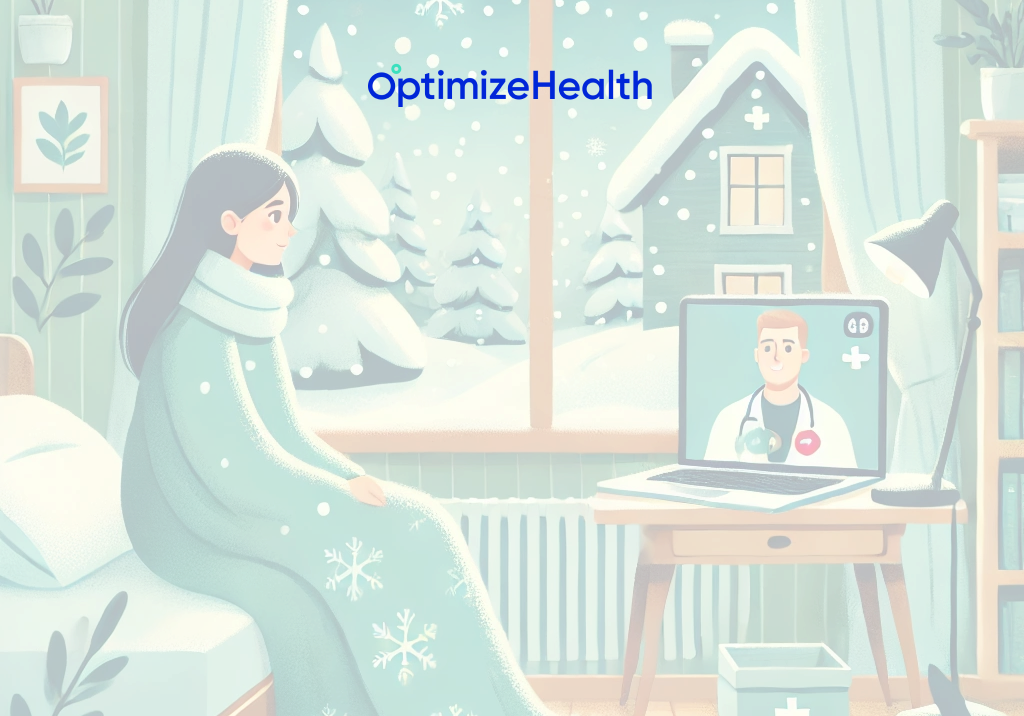As colder temperatures approach, healthcare providers have an opportunity to practice preventative care for their at-risk patients. Colder temperatures have very real impacts on hospitalizations, especially for the elderly. One study demonstrated that for every 1 ⁰C decrease in temperature, hospital admissions increased 1.6% overall and 2.4% for the elderly (over 75).
Seasonal Illnesses
Seasonal illnesses like the flu and Covid always spike in the winter and those with underlying chronic diseases are the most at risk for severe flu and Covid. Patients at high risk for severe flu or Covid during the winter can benefit tremendously from remote patient monitoring (RPM) and chronic care management (CCM). Now is the time to get patients onboarded and engaged with the process before the most serious winter risks set in.
Covid and the flu can cause significant spikes in blood sugar for diabetics. Patients with diabetes, even well-controlled diabetes, need to be checking their blood pressure more frequently when they are sick. A monitoring clinician with access to real-time data can help assess patients and determine if they need additional treatment.
Similarly, these same illnesses can cause increases in blood pressure or fluid retention for patients with hypertension and heart failure. Using a remote blood pressure device and/or scale can catch spikes early, preventing hospitalizations or more adverse events.
Less Activity, More Eating
According to a National Recreation and Park Association (NRPA) poll, 58% of U.S. adults are less active in the winter. Less activity combined with a season full of sugary pumpkin spice, football parties, and holiday desserts isn’t great for anyone’s weight, blood pressure, or blood sugar. And it’s especially dangerous for those with diabetes and other chronic conditions.
It’s easy to slide into less healthy habits in the winter and this can easily worsen health conditions. Remote patient monitoring is about more than just blood pressure or blood sugar readings. It’s about accountability and developing healthy habits with help from a monitoring clinician.
Staying on track with lifestyle goals is more important than ever during the holidays when that last slice of pie or one more cookie is ever so tempting. And throughout the winter when staying on the couch is more appealing than working out. Patients who know someone is watching their vital signs are more likely to make smarter lifestyle choices.
Air Temperature and Heart Attacks
The American College of Cardiology has found that exposure to cold weather does increase hospital admissions for heart attacks. Particularly, risks increase two to six days after cold spell exposure. The study found the risk decreases on day one of a cold spell likely because patients are staying indoors. This highlights the importance of proactive interventions to protect the most vulnerable patients from cold stress.
When elderly or at-risk patients have an ongoing relationship with a monitoring clinician, that clinician can coach them to stay indoors and limit exposure during unsafe winter storms. At the same time, the clinician can encourage more frequent readings to check for trends in blood pressure that may require early intervention.
Seasonal Depression
Increased indoor time, decreased physical activity, and reduced sunlight can lead to seasonal affective disorder (SAD), a form of depression. This can exacerbate feelings of isolation and loneliness, which are already common among some elderly individuals. Anxiety and depression can have very real effects on blood pressure, weight, and other physical measures of health.
Continuous engagement through remote patient monitoring and/or chronic care management can provide early warning signs of depression and worsening physical health due to anxiety and depression. Monitoring clinicians can watch for the physical signs of depression and also make referrals to help patients get the mental health help they may need.
A Holistic Approach to Health for Every Season
RPM and CCM provide a proactive, holistic approach to preventative health year-round. But with increased health risks – both physical and mental – during the colder seasons, having a monitoring clinician available for your most at-risk patients can save lives.
And it doesn’t have to be taxing on your staff. Optimize Health can provide managed remote patient monitoring where our team of clinicians become an extension of your staff. Contact us to learn more.
